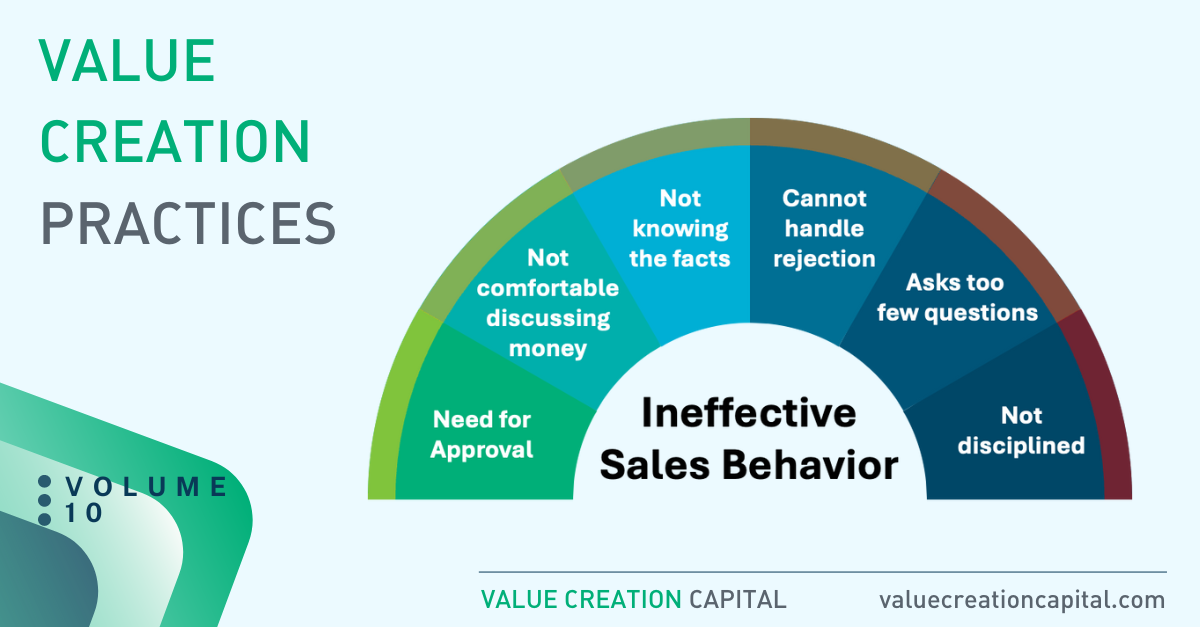Six signs of ineffective sales behavior

Recruiting people is crucial to grow businesses. Yet it’s not an easy task, especially recruiting sales professionals. These people know how to excellently sell themselves. But what you see is not always what you get.
Countless books have already been written about acquiring successful sales professionals. So let me share another view, on how to recognize ineffective sales behavior. Over the many sales assessments we’ve done, we categorized 6 signs of this ineffective sales behavior. This also includes current sales staff.
1. Need for approval: Sales pros always needing approval is closely related to protecting their relationships within their networks. Although managing your network is essential, overemphasizing the importance could lead to ineffective sales. To not want to harm your relationship could mean “leaving money on the table” due to soft negotiations. Or it can mean promising too much, e.g. selling products that are not standard or – worse – are not even available yet. In addition, these salespeople are more likely to accept put offs and excuses. Or not asking for commitment for their solution. Finally, there could be a tendency to value outsiders more than their colleagues and peers.
2. Not comfortable discussing money: Not discussing money can go two ways: either not discussing the price of your offering or not discussing the available budget of the customer itself. To not discuss any of these in time or not at all, equals ineffective sales behavior.
3. Not knowing the facts: Great salespeople can be awakened at night and be able to tell you their target. Moreover, they will also share the remaining amount of deals they need to close. Effective sales pros know their numbers. By their reverse engineering they know how many conversations or proposals they’ll have to make to achieve their target. In short: sales pros always assess their own opportunities. In addition, they have to understand the background of the customer, like their buying process and the involved Decision Making Unit (DMU).
4. Can’t handle rejection: Not being able to handle rejection is closely related to the first behavior on this list. Sales pros are required to be persistent at heart. They should never take rejection personal, and so avoid being demotivated by it.
5. Asking too few questions: Immature salespeople will often say a lot, but eventually fail to ask the relevant questions. The art of the exploring dialogue is essential to qualify the sales opportunity. Also, asking questions is conditional to play the role of a good consultative seller. Especially that is becoming more and more important in B2B processes. Asking questions is crucial to discover the compelling reason(s) for the customer to buy your product or service.
6. Not disciplined: Disciplined behavior might not be the first competency that people would associate with effective salespeople. But a lack of discipline could lead to failure in sales in multiple ways. Failing to follow-up your contacts and planning the next meeting is a recipe for stalling your sales opportunity. Other non-disciplined behavior such as losing control of your emotions will surely lead to losing control over the sales process too. And yes, effective salespeople know that they have to complete their CRM and prepare reports.